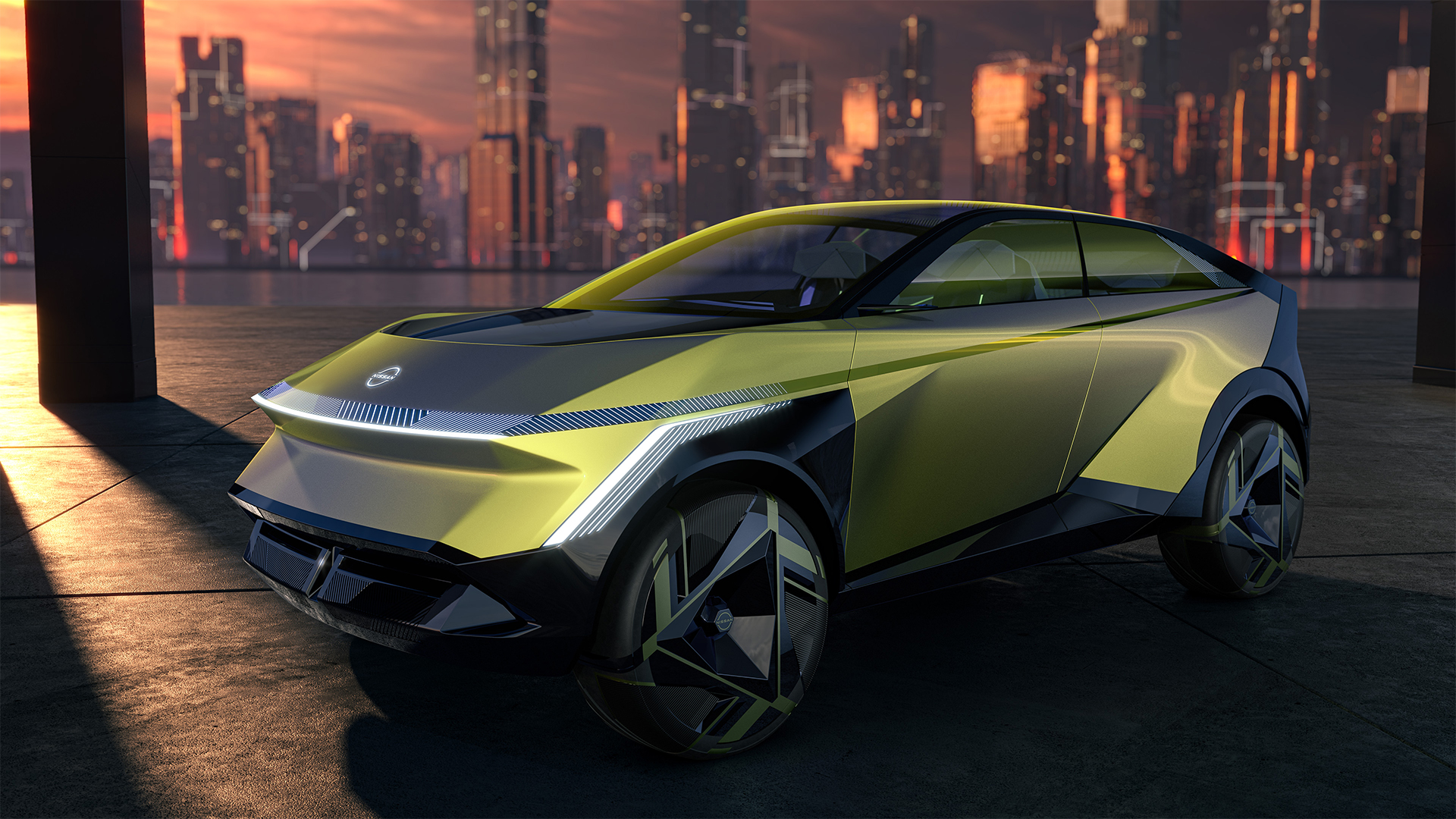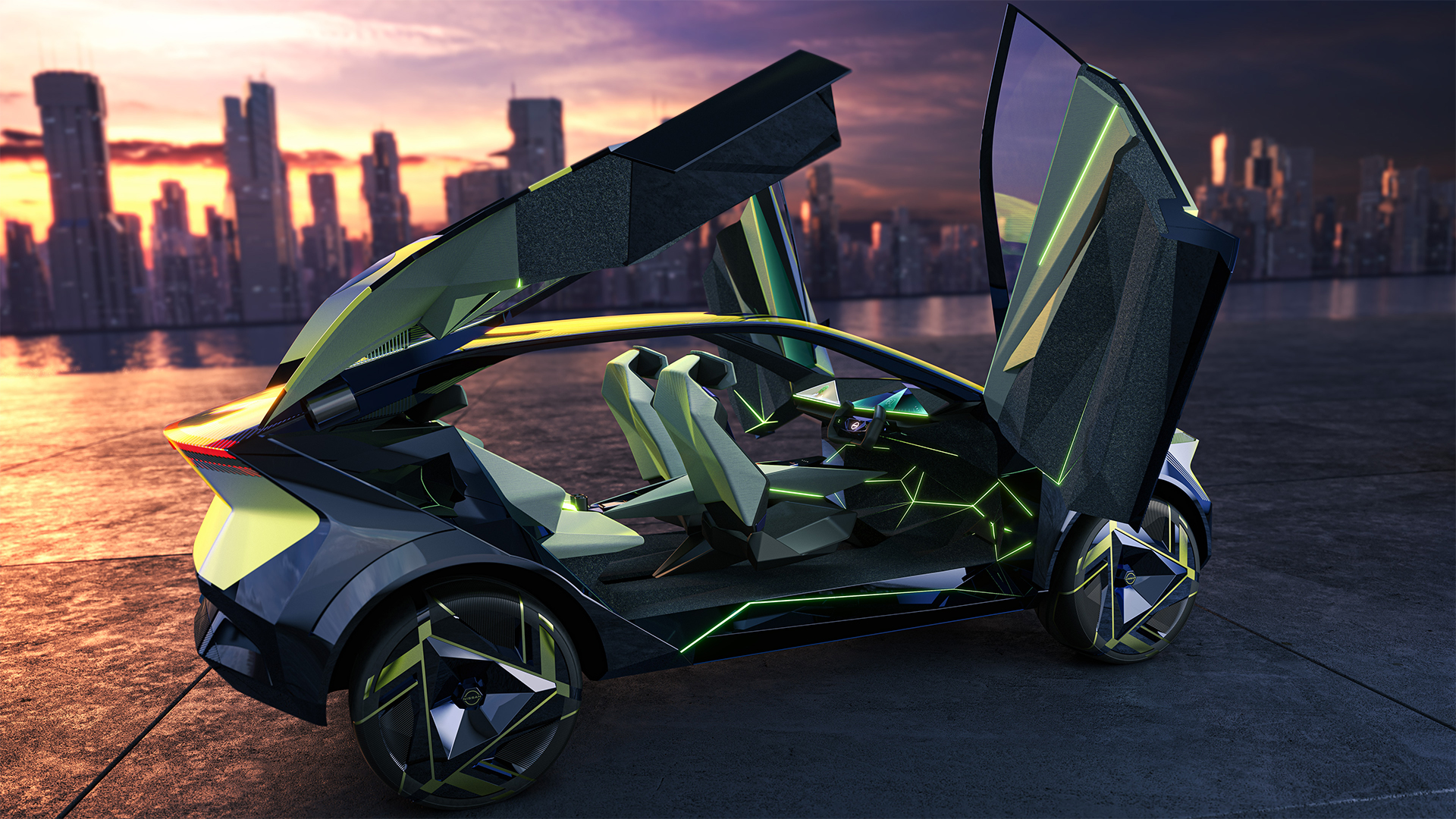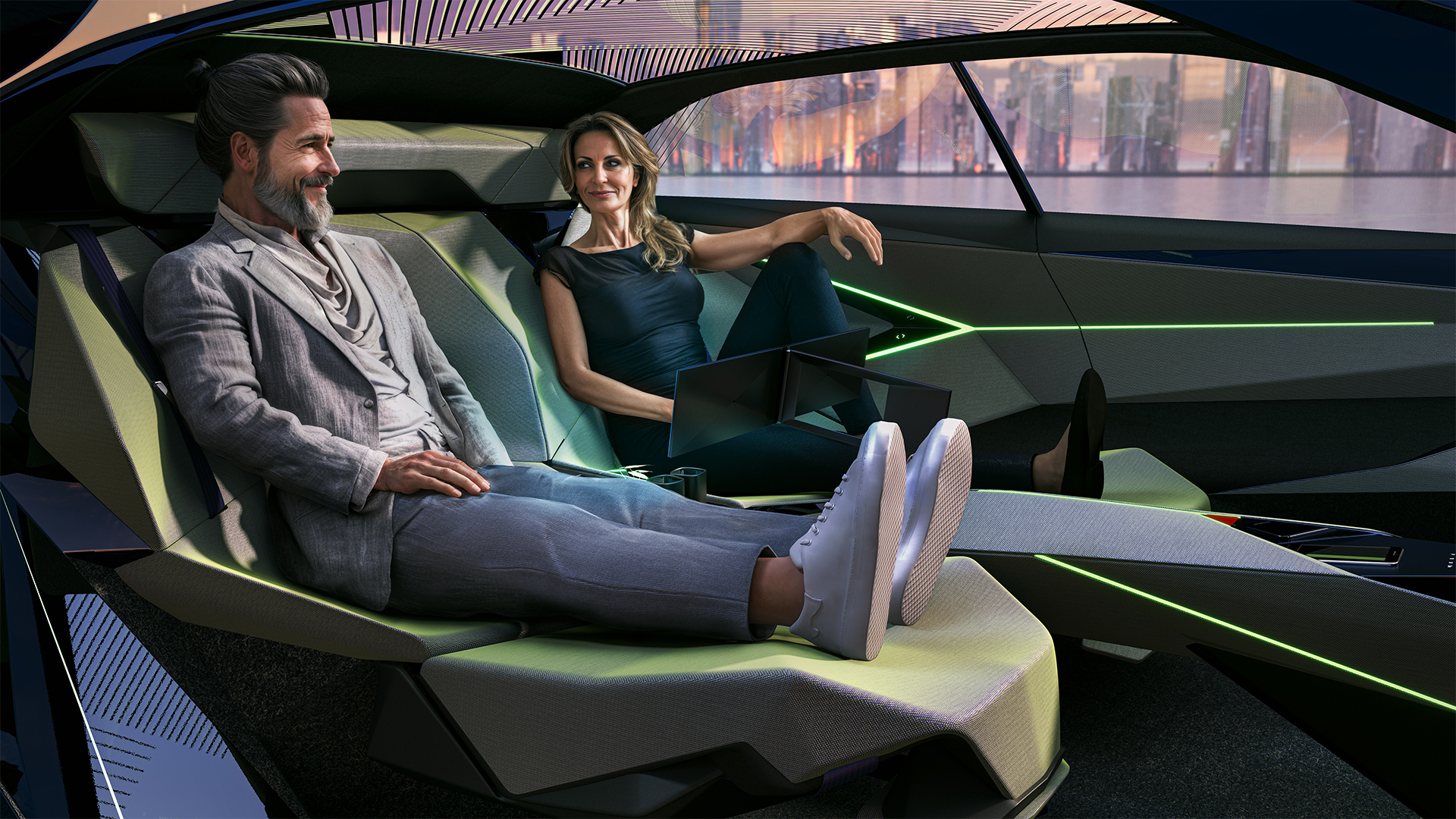Nissan’s future EVs could double-up as your sofa
The Hyper Urban concept car wants to be driven into your loft apartment


Nissan is readying itself to unveil a slew of radical concept cars at the upcoming Japan Motor show later this month and the first in a line of forward-thinking EVs is the Hyper Urban concept.
Each design study will feature the word "hyper", presumably because that’s how the designers were feeling when they put pen to paper. But in Nissan’s words, it is because every concept will "express the heightened excitement they aim to bring".
The first of these is a sharp, spiky crossover that "perfectly complements the sophisticated tastes of its target users, such as urban – and suburban – based professionals". The angular exterior, decked out in chromatic paint that subtly changes hues and insane wheels, is topped-off by scissor doors that open wide for easy access to the interior.

It is inside where things get really funky, as Nissan designers have provided four individual seats that have the air of Business Class travel about them. Passengers in the back get a large, swivelling display upon which they can binge the latest boxsets or catch up on emails.
Things get really mad when you consider the front seats can collapse and fold into the back seats, creating a sofa-like, private relaxing space with footrests. The designers suggest the vehicle can then be driven into a loft apartment or bungalow where it "becomes an interior space to unwind".
Of course, the likelihood off this happening is zero to none, but it's a neat design device to draw attention to the electric vehicle’s Vehicle to Home (V2H) and Vehicle to Grid (V2G) capabilities.

In short, the car's battery packs can be used to power the home, or surplus energy can be fed back into the grid to smooth out peaks in demand, or to make the owner a little extra cash on the side. The Intelligent Charging Management System features AI that can autonomously charge vehicles and power buildings, providing efficient management of power.
Get all the latest news, reviews, deals and buying guides on gorgeous tech, home and active products from the T3 experts
The fact that Nissan already has this technology in some of its EVs, where it has already helped power homes during natural disasters, suggests that more upcoming electric vehicles from the brand will feature the tech.
As for the concept, it likely won't be parked in your flat, nor will it feature the insane styling cues we see here. But this, along with other recent concepts from the Japanese brand, suggests future cars could take a more radical design direction.
Leon has been writing about automotive and consumer tech for longer than he cares to divulge. When he’s not testing the latest fitness wearable and action camera, he’s out in a shed fawning over his motorcycles or trying not to kill himself on a mountain bike/surfboard/other extreme thing. He's also a man who knows his tools, and he's provided much of T3's drills coverage over the years, all without injuring himself.
